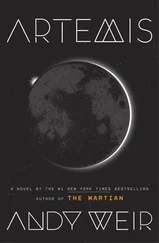I sit cross-legged on the floor. It’s time for a proactive step. I close my eyes and let my mind wander. I want to remember something—anything—on purpose. I don’t care what. But I want to initiate it. Let’s see what I get.
I start with what makes me happy. I like science. I know it. I got a thrill from all the little experiments I’ve been doing. And I’m in space. So maybe I can think about space and science and see what I get….
* * *
I pulled the piping-hot spaghetti TV dinner from the microwave and hustled over to my couch. I peeled the plastic off the top to let the steam escape.
I unmuted the TV and listened to the live feed. Several coworkers and a few friends had invited me to watch this with them, but I didn’t want to spend the whole evening answering questions. I just wanted to watch in peace.
It was the most watched event in human history. More than the moon landing. More than any World Cup Final. Every network, streaming service, news website, and local TV affiliate was showing the same thing: NASA’s live feed.
A reporter stood with an older man in the gallery of a flight-control room. Beyond them, men and women in blue shirts fixed their attention on their terminals.
“This is Sandra Elias,” said the reporter. “I’m here at the Jet Propulsion Laboratory in Pasadena, California. I’m here with Dr. Browne, who is the head of Planetary Sciences for NASA.”
She turned to the scientist. “Doctor, what’s our status now?”
Browne cleared his throat. “We received confirmation about ninety minutes ago that ArcLight successfully inserted into orbit around Venus. Now we’re just waiting for that first batch of data.”
It had been a heck of a year since the JAXA announcement about the Petrova problem. But study after study confirmed their findings. The clock was ticking and the world needed to find out what was going on. So Project ArcLight was born.
The situation was terrifying, but the project itself was awesome. My inner nerd couldn’t help but be excited.
ArcLight was the most expensive unmanned spacecraft ever built. The world needed answers and didn’t have time to dillydally. Normally if you asked a space agency to send a probe to Venus in under a year, they’d laugh in your face. But it’s amazing what you can do with an unlimited budget. The United States, European Union, Russia, China, India, and Japan all helped cover costs.
“Tell us about going to Venus,” the reporter said. “What makes it so hard?”
“The main problem is fuel,” said Browne. “There are specific transfer windows when interplanetary travel takes the minimum amount of fuel, but we were nowhere near an Earth-Venus window. So we had to put a lot more fuel in orbit just to get ArcLight there in the first place.”
“So it’s a case of bad timing, then?” the reporter asked.
“I don’t think there’s ever a good time for the sun to get dimmer.”
“Good point. Please go on.”
“Venus moves very fast compared to Earth, which means more fuel just to catch up. Even under ideal conditions, it actually takes more fuel to get to Venus than it does to get to Mars.”
“Amazing. Amazing. Now, Doctor, some people have asked, ‘Why bother with the planet? The Petrova line is huge, spanning an arc from the sun to Venus. Why not somewhere between?’ ”
“Because the Petrova line is widest there—as wide as the whole planet. And we can use the planet’s gravity to help us out. ArcLight will actually orbit Venus twelve times while collecting samples of whatever material the Petrova line is made of.”
“And what is that material, you think?”
“We have no idea,” said Browne. “No idea at all. But we might have answers soon. Once ArcLight finishes this first orbit, it should have enough material for its onboard analysis lab.”
“And what can we expect to learn tonight?”
“Not much. The onboard lab is pretty basic. Just a high-magnification microscope and an x-ray spectrometer. The real mission here is sample return. It’ll be another three months for ArcLight to come home with those samples. The lab is a backup to get at least some data in case there’s a failure during the return phase.”
“Good planning as always, Dr. Browne.”
“It’s what we do.”
A cheer erupted from behind the reporter.
“I’m hearing—” She paused to let the sound die down. “I’m hearing that the first orbit is complete and the data is coming in now….”
The main screen in the control room changed to a black-and-white image. The picture was mostly gray, with black dots scattered here and there.
“What are we looking at, Doctor?” said the reporter’s voice.
“This is from the internal microscope,” said Browne. “It’s magnified ten thousand times. Those black dots are about ten microns across.”
“Are those dots what we’ve been looking for?” she asked.
“We can’t be certain,” said Browne. “They could just be dust particles. Any major gravity source like a planet will have a cloud of dust surrounding—”
“What the fuck?!” came a voice in the background. Several flight controllers gasped.
The reporter snickered. “High spirits here at JPL. We are coming to you live, so we apologize for any—”
“Oh my God!” said Browne.
On the main screen, more images came through. One after another. All nearly the same.
Nearly.
The reporter looked at the images on-screen. “Are those particles…moving?”
The images, playing in succession, showed the black dots deforming and shifting around within their environment.
The reporter cleared her throat and delivered what many would call the understatement of the century: “They look a little like microbes, wouldn’t you say?”
“Telemetry!” Dr. Browne called out. “Any shimmy in the probe?”
“Already checked,” said someone. “No shimmy.”
“Is there a consistent direction of travel?” he asked. “Something that could be explained by an external force? Magnetic, maybe? Static electricity?”
The room fell silent.
“Anyone?!” said Browne.
I dropped my fork right into my spaghetti.
Is this actually alien life? Am I really that lucky?! To be alive when humanity first discovers extraterrestrial life?!
Wow! I mean—the Petrova problem is still terrifying but…wow! Aliens! This could be aliens! I couldn’t wait to talk about this with the kids tomorrow—
* * *
“Angular anomaly,” the computer says.
“Darn it!” I say. “I was almost there! I almost remembered myself!”
“Angular anomaly,” the computer repeats.
I unfold myself and get to my feet. In my limited interactions with it, the computer seems to have some understanding of what I say. Like Siri or Alexa. So I’ll talk to it like I’d talk to one of them.
“Computer, what is an angular anomaly?”
“Angular anomaly: an object or body designated as critical is not at the expected location angle by at least 0.01 radians.”
“What body is anomalous?”
“Angular anomaly.”
Not much help. I’m on a ship, so it must be a navigational issue. That can’t be good. How would I even steer this thing? I don’t see anything resembling spaceship controls—not that I really know what those look like. But all I’ve discovered so far is a “coma room” and a lab.
That other hatch in the lab—the one that leads farther up—that must be important. This is like being in a video game. Explore the area until you find a locked door, then look for the key. But instead of searching bookshelves and garbage cans, I have to search my mind. Because the “key” is my own name.
Читать дальше

![Энди Вейр - Артемида [ёфицировано]](/books/31723/endi-vejr-artemida-eficirovano-thumb.webp)




![Энди Вейр - Проект Радуйся, Мария [ЛП]](/books/385212/endi-vejr-proekt-radujsya-mariya-lp-thumb.webp)
![Энди Вейр - Артемида [litres]](/books/415474/endi-vejr-artemida-litres-thumb.webp)
![Энди Вейр - Вперед [сборник litres]](/books/433676/endi-vejr-vpered-sbornik-litres-thumb.webp)